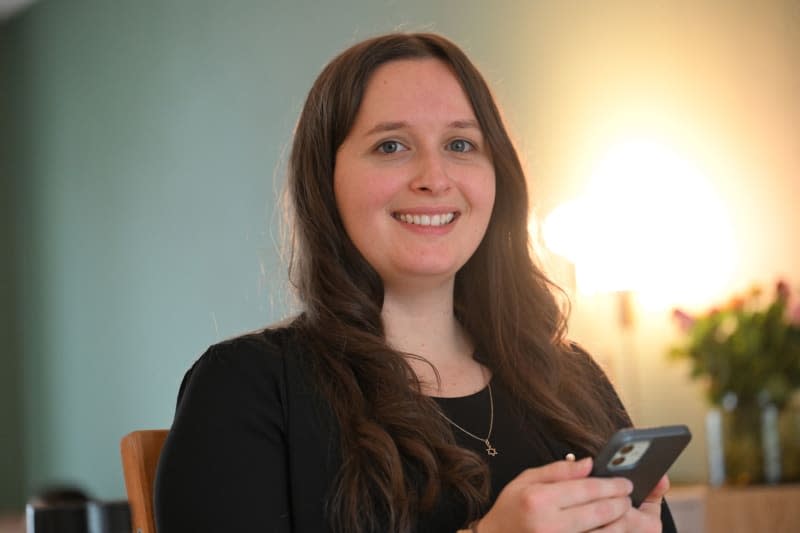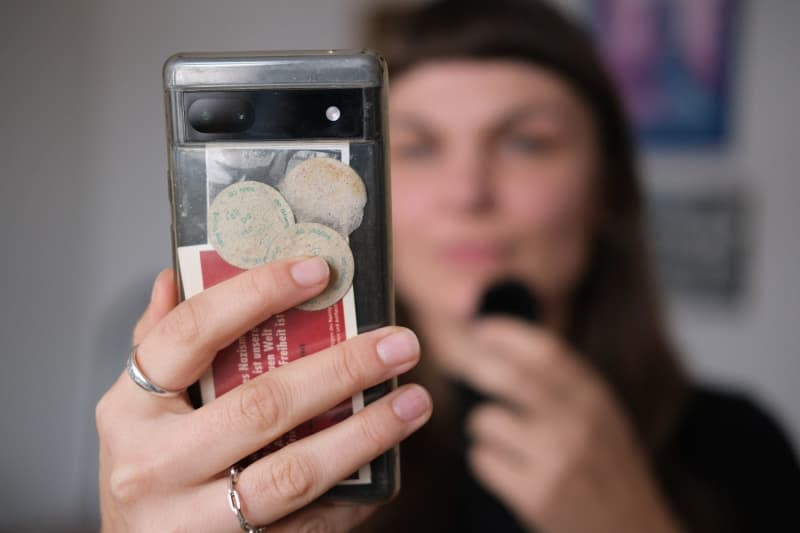Tiktok, a free-for-all of anti-Semitic and Jewish educational videos

Rica Allam shares her life as a Jew in Germany in videos on Tiktok. On the short video platform, the 31-year-old explains to her roughly 36,000 followers, for example, what her family serves on Shabbat.
She shows viewers how to bake challah - a braided bread - in rainbow colours and which traditions are part of the Jewish Sukkot festival. According to the platform, some videos are viewed more than 100,000 times.
But the clips also receive comments with more serious content. One user wrote under an Allam video that Allam should visit her family in "Munich Buchenwald," alluding to the Nazi-run concentration camp, where the number of people who died while in custody is estimated at 56,000.
Allam replied curtly: "Unfortunately, I can't do that because Buchenwald is in Weimar," about 400 kilometres north of Munich.
Between 1937 and 1945, the National Socialists held more than a quarter of a million people in the Buchenwald concentration camp. The tens of thousands who died perished either from the catastrophic conditions or were killed.
She does not usually report such comments to the police, says Allam in an interview with dpa. But in this case she did. "I don't want to go to court, that's not my goal at all. I just want it to be a wake-up call that you can't post everything on the internet and expect it to be okay for everyone."
Allam came up with the idea for the Tiktok videos because she often encountered ignorance and prejudice from other people when she told them that she was Jewish. She was also unaware of any German-Jewish Tiktokers.
"With Tiktok, I can give really good insights into Jewish life," she thought to herself.
For many users, the former entertainment platform has long since become a place for further education. Organizations and individual content creators who produce videos want to reach young people where they spend a lot of time anyway - and where disinformation can often be found.
Simplicity is also important to Allam. You don't have to write or plan much on Tiktok, she says: "Theoretically, you can just talk into the camera."
Eva Berendsen, spokeswoman for the Anne Frank Educational Centre, also knows how important Tiktok is for political education and the fight against anti-Semitism.
"Tiktok is the leading medium for a young generation," she says. The educational centre wants to raise awareness on Tiktok with the #GemeinsamgegenAntisemitismus - which means #Togetheragainstanti-Semitism - campaign and counteract anti-Semitic hate speech and conspiracy narratives. Allam is part of the campaign.
Even though anti-Semitism on Tiktok is not a new phenomenon, the situation has worsened dramatically in recent months, says Berendsen.
"What we are currently seeing on our for-you pages is to a large extent blatant hatred of Israel, blatant anti-Semitism, anti-Semitic conspiracy theories about Israel and the retaliatory attack on the Gaza Strip," she says.
Individual Jewish Tiktokers who are involved in the awareness-raising campaign have reported massive hostility in some cases.
Tiktok is often about "high tempo, sensory overload and bold messages," says Berendsen. This plays into the hands of anti-democrats with a simplistic view of the world.
Educational work, on the other hand, faces enormous challenges. Because balanced, differentiated content often needs more time.
"The platforms favour content that generates a high level of interaction - and that is often hateful and violent content," says Monika Hübscher. She researches anti-Semitism in social networks at the Universities of Duisburg-Essen and Haifa.
Anti-Semitic or terrorist content is disseminated by the algorithms, "even if it actually violates the platforms' guidelines."
She is concerned about the current flood of violent images from the Middle East. These are mixed with targeted disinformation campaigns by various actors.
However, Hübscher believes that we should not be discouraged by the fact that positive content almost always has less reach than negative content. It is important not to comment on hateful or even terrorist images and videos and instead express solidarity with Jews online.
"If you combine this with the right hashtags, you can also generate attention."
Susanne Siegert also counteracts the hate, hate speech and disinformation that often circulate by raising awareness. The 31-year-old from Leipzig provides information about the Holocaust on Tiktok, but also focuses on the present - for example by explaining why certain emojis or number codes have an anti-Semitic background.
"That's where I see the most potential for discussion and the greatest reach, because it simply plays a major role in the lives of many young people."
Since the Hamas attack on Israel, the tone of her videos has also become harsher. She deletes many comments - "because these are things where I don't want to get into a discussion," says Siegert. As an example, she cites comparisons that users draw between the Holocaust and Israel's counter-attacks in the Gaza Strip.
Siegert would like to see more straightforward guidelines from Tiktok and more consistency in their enforcement. She repeatedly sees Nazi symbols in profile pictures or Nazi slogans in profile descriptions, where she thinks: "This is really clearly anti-Semitic: why isn't the moderation system working?"
Tiktoker Allam also believes that the platform has a duty to flag videos with obvious misinformation. Allam would like users to "take some of the burden off the creators' shoulders, so that they don't feel so alone in the fight in the comment column." Users could also report or report anti-Semitic comments, she says.


